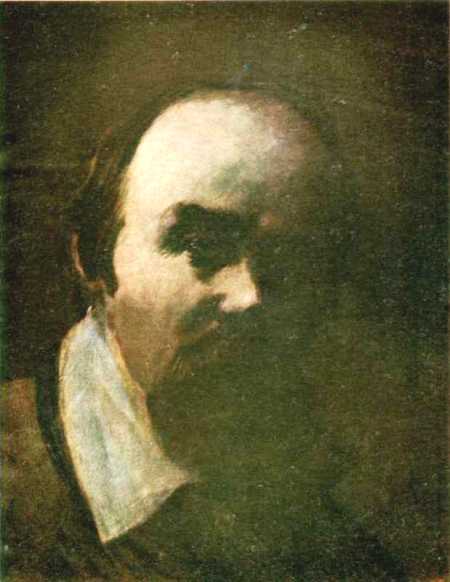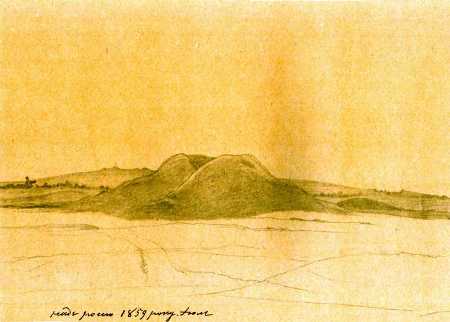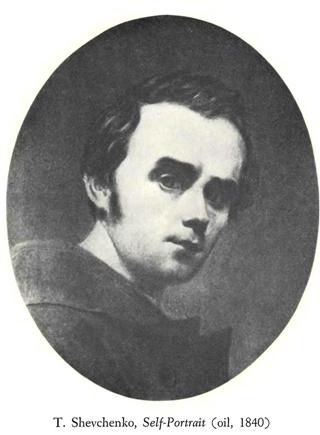|
TARAS SHEVCHENKO’S LIFE AND WORK
(part of the biography written by C. H. Andrusyshen)
Taras Shevchenko. Self-portrait, 1859. Oil on canvas.
In June 1859, he again found himself on Ukrainian soil, visiting the villages where he was born and brought up and spending leisurely days at the homes and estates of his friends scattered about the province of Kiev. Particularly tender was his meeting with his sister Yarina in the village of Kirilivka and with his sister-in-law’s brother, Vartolomiy, a steward on the estate of a Ukrainian landlord in the vicinity of Korsun. His freedom of movement and of expression, however, were constantly disturbed by police agents who followed him wherever he went. Although he voiced his opinions about the much needed social reforms freely, there was nothing subversive to be detected in his views, and all would have gone well if he had not on several occasions been rather outspoken on certain religious matters. No patent sacrilege was involved in what Shevchenko said (he was a God-fearing man), but it was seriously treated as such by the authorities, and on those grounds he was arrested and brought to Kiev where the Governor ordered him to return to St. Petersburg. Shevchenko, however, took his time about it. After all, he had come to Ukraine to get married. As far as his "anti-religious” utterances were concerned, Shevchenko was indeed critical of the clergy who did not care for the material or spiritual welfare of the people entrusted to their care. In discussing this matter, he occasionally coupled a certain fraction of the priesthood with the ruling classes. In his conversations he often became heated, and this caused some of his listeners to exaggerate the meanings of his words. But it is a fact that in dealing with the prevailing social, economical, and political conditions, Shevchenko was a radical in this stand, stubbornly so, as for example when he asserted that the common people could well be spared the tsar, the landlords, and the priests from whom they derived no essential benefits. For like reasons he even calumniated the memory of Bohdan Khmelnitsky, whom he always held responsible for Ukraine's loss of independence through the Treaty of Pereyaslav which the Hetman concluded with Russia in 1654. Truth to tell, towards the end of his life Shevchenko became highly irritable, even cantankerous, as his poems of that period readily attest, especially those in which he attacked the powers that be, secular and spiritual. As to religion itself, may it be repeated, he never expressed himself with hostility. Still, throughout his life he was often tactless, rash, argumentative, imprudent, in fact, defiant. Sociable and amiable enough though he was, he could, if roused, become morose, and even surly. Often he irked his masters with his inveterate recalcitrancy. Psychologically, such a diposition must have stemmed from the fact that he had been a serf, constrained to be shy and modest, but possessed of an overbearing pride that broke all the barriers as he sought to assert himself. Instead of remaining in Ukraine five months, as he had intended, Shevchenko was forced to return to St. Petersburg after only two and a half-months' sojourn.
Taras Shevchenko. Over Rossi. Paper, pencil. VII 1859. Taras Shevchenko National Museum.
Introduction written by Professor C.H. Andrusyshen
Read more: Recent comments for the page
«Taras Shevchenko’s third trip to Ukraine in 1859 (part of the biography written by C.H. Andrusyshen)»:
Refresh comments list
Total amount of comments: 0 + Leave a comment
|
|


